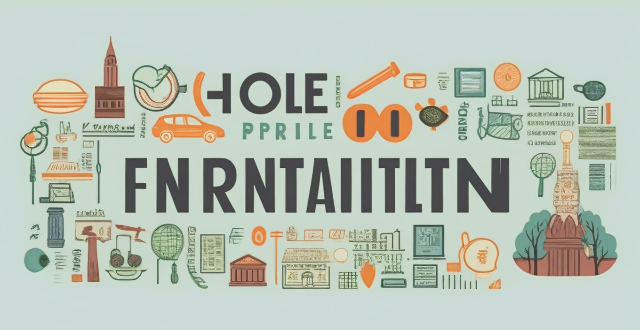The article discusses the role of governments in promoting public climate awareness. It suggests that governments can launch education and information campaigns, provide incentives and subsidies, implement regulations and policies, and collaborate with NGOs to raise public awareness about climate change. The article also emphasizes the importance of incorporating climate change education into school curriculums and enforcing stricter building codes to promote sustainability. Overall, the article highlights the crucial role governments play in promoting public climate awareness and encourages them to take action to mitigate the effects of climate change.

The Role of Governments in Promoting Public Climate Awareness
Governments play a crucial role in promoting public climate awareness. They have the power to implement policies and programs that educate citizens about the importance of climate change and encourage them to take action. Here are some ways governments can promote public climate awareness:
Education and Information Campaigns
Governments can launch education and information campaigns to raise public awareness about climate change. These campaigns can include:
- Advertising: Governments can use billboards, television ads, and social media to spread messages about climate change.
- School Curriculum: Governments can work with schools to incorporate climate change education into the curriculum.
- Public Events: Governments can organize events such as conferences, seminars, and workshops to educate the public about climate change.
Incentives and Subsidies
Governments can provide incentives and subsidies to encourage individuals and businesses to adopt environmentally friendly practices. For example:
- Tax Breaks: Governments can offer tax breaks for companies that reduce their carbon footprint.
- Grants: Governments can provide grants for research and development of clean energy technologies.
- Rebates: Governments can offer rebates for households that install solar panels or purchase electric cars.
Regulations and Policies
Governments can implement regulations and policies that promote sustainability and reduce greenhouse gas emissions. Some examples include:
- Carbon Pricing: Governments can implement a carbon tax or cap-and-trade system to reduce carbon emissions.
- Renewable Energy Mandates: Governments can set targets for renewable energy production and require utility companies to meet these targets.
- Building Codes: Governments can enforce stricter building codes that require new buildings to be more energy-efficient.
Collaboration with Non-Governmental Organizations (NGOs)
Governments can collaborate with NGOs to promote public climate awareness. By working together, they can reach a wider audience and create more impactful campaigns. Some ways governments can collaborate with NGOs include:
- Funding: Governments can provide funding for NGOs to carry out their climate change initiatives.
- Partnership Programs: Governments can partner with NGOs to launch joint programs that aim to raise public awareness about climate change.
- Advocacy: Governments can support NGOs' advocacy efforts by endorsing their campaigns and lending their voice to the cause.
In conclusion, governments play a vital role in promoting public climate awareness by implementing various policies and programs that educate citizens about climate change and encourage them to take action. By working together with NGOs and other stakeholders, governments can create a more significant impact and help mitigate the effects of climate change.